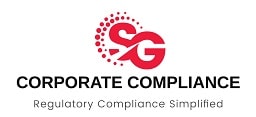Singapore Branch Office vs Subsidiary vs Representative Office
Foreign companies that wish to establish their foothold in Singapore can choose to set up one of the three entity structures. They are namely the branch office, subsidiary company, and representative office. Each entity has its own benefits and drawbacks. Engaging the service of a professional corporate service provider will be required to register for any of the entities in Singapore. On top of that, you can seek proper advice to decide which is the best option for you.
An important point to note is that a representative office can only engage in market research and liaising activities. Other than that, it cannot engage in any business activity that generates revenue. Please see the comparison table below for the information on each structure.
| Branch Office | Subsidiary Company | Representative Office | |
| Legal Type: | Not a separate legal entity but an extension of the foreign holding company | Separate legal entity | Has no legal status, a temporary administrative arrangement |
| Liabilities: | Liabilities extend to the foreign holding company | Liabilities limited to subsidiary | Liabilities extend to the foreign holding company |
| Entity Name: | Must be the same as the foreign holding company | Can be the same or different from the foreign holding company | Must be the same as the foreign holding company plus must include ‘Representative Office’ |
| Allowed Activities: | Must be the same as the foreign holding company | Can be the same or different from the foreign holding company | Can only conduct market research or evaluate the viability of doing business in Singapore and the region |
| Validity Period: | Registered forever until closed | Registered forever until closed | Has to be renewed every year up to a maximum of 3 years |
| Criteria | No criteria | No criteria | 1. Sales Turnover of the foreign entity must be more than US$250,000
2. No. of years of establishment of the foreign entity must be more than 3 years 3. Proposed No. of staff for RO should be < 5 people |
| Registration Process: | 1 to 2 days | 1 to 2 days | 3 to 5 days |
| Registration Fee:
|
Name Application: S$15
Registration: S$300 (Excluding Professional Fee) |
Name Application: S$15
Registration: S$300 (Excluding Professional Fee) |
Registration: S$200/year
(Excluding Professional Fee) |
| Taxation: | Income will be taxed at 17% as a non-resident entity. Not eligible for any tax benefits. | Income will be taxed at 17% as a resident entity. Eligible for any tax benefits | Not applicable as the representative office cannot generate income |
| Annual Compliance Filing: | 1. Must file audited branch office accounts as well as foreign holding company’s accounts
2. File Annual Return 2. Annual Tax submission |
1. Must file Annual Return and hold AGM
2. Prepare financial statements 3. Annual Tax submission |
Not applicable |
| Bank Account: | Can open a bank account in Singapore | Can open a bank account in Singapore | Can open a bank account in Singapore to run the cost center operations. Must be funded by the foreign holding company. |
| Staff Hiring: | No restrictions on hiring local or foreign staff | No restrictions on hiring local or foreign staff | Chief Representative must be a staff member from the foreign holding company. Can have only five employees. |
| Appointment of Officers: | Must appoint at least one local authorized representative | Must appoint at least one local resident director | Must appoint a Chief Representative who will relocate from headquarters |
Conclusion
It is recommended to register a subsidiary company in Singapore compare to the other structures. Not only it provides a separate legal status from the parent company, but it is also eligible for the tax benefits as a resident entity. Furthermore, the business activities can be different from the parent company which gives flexibility.



